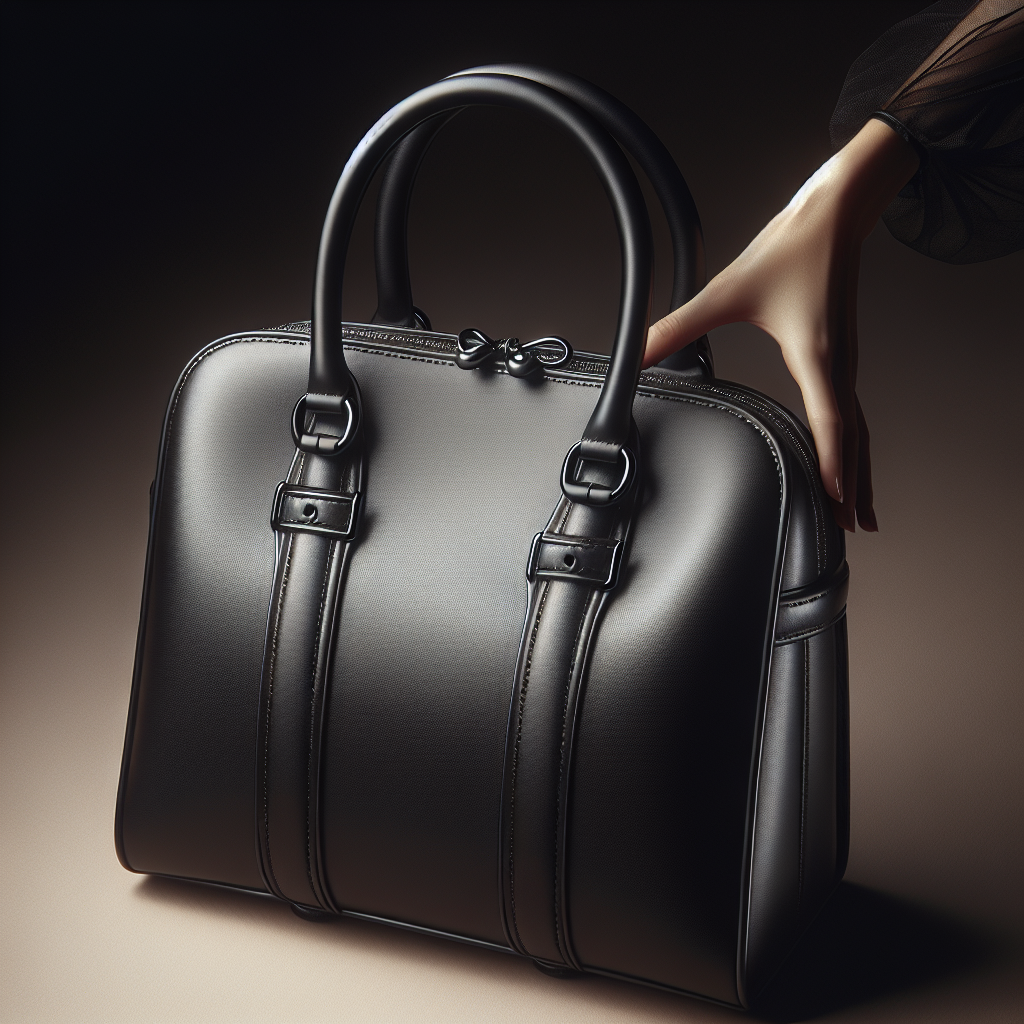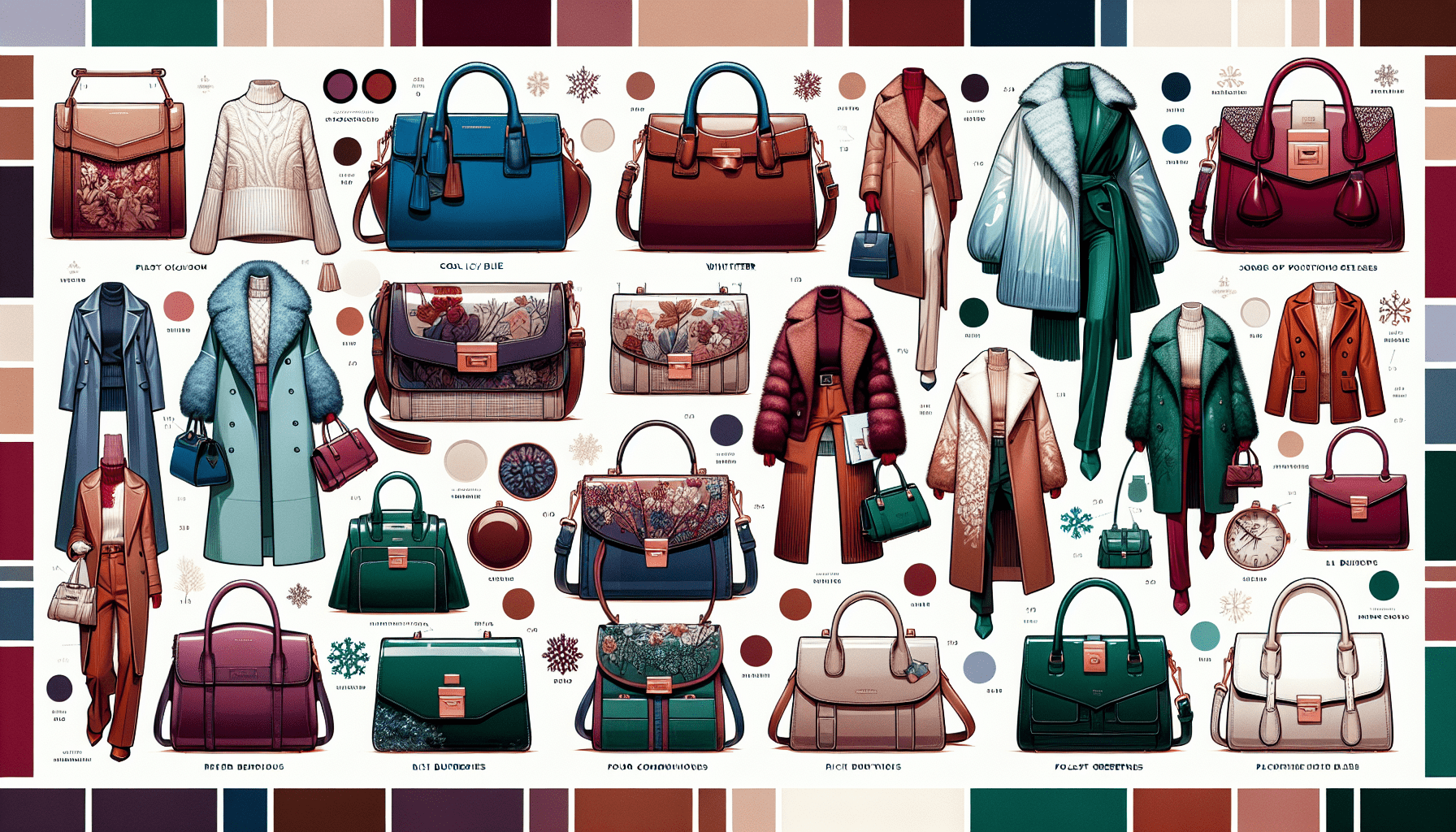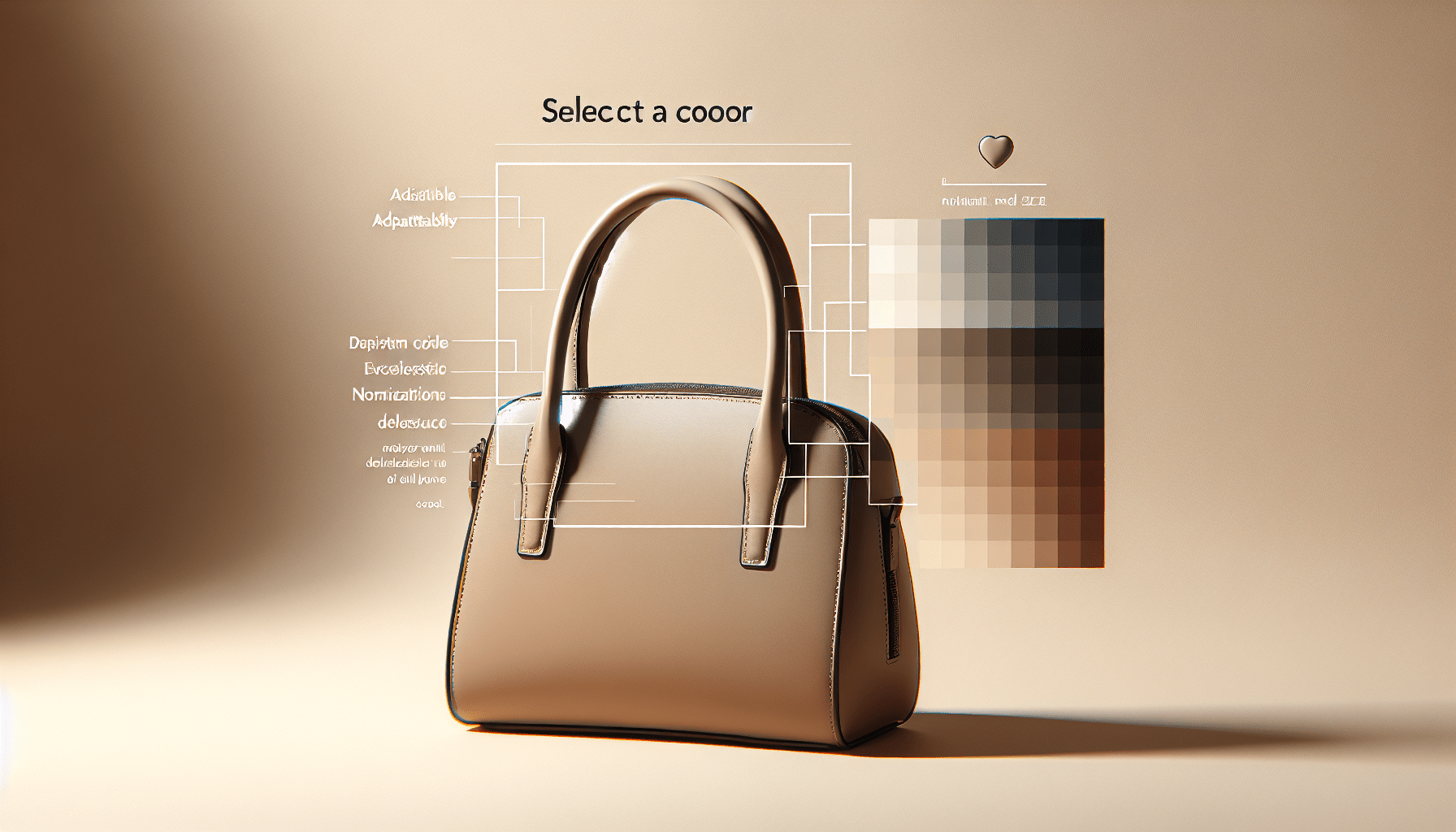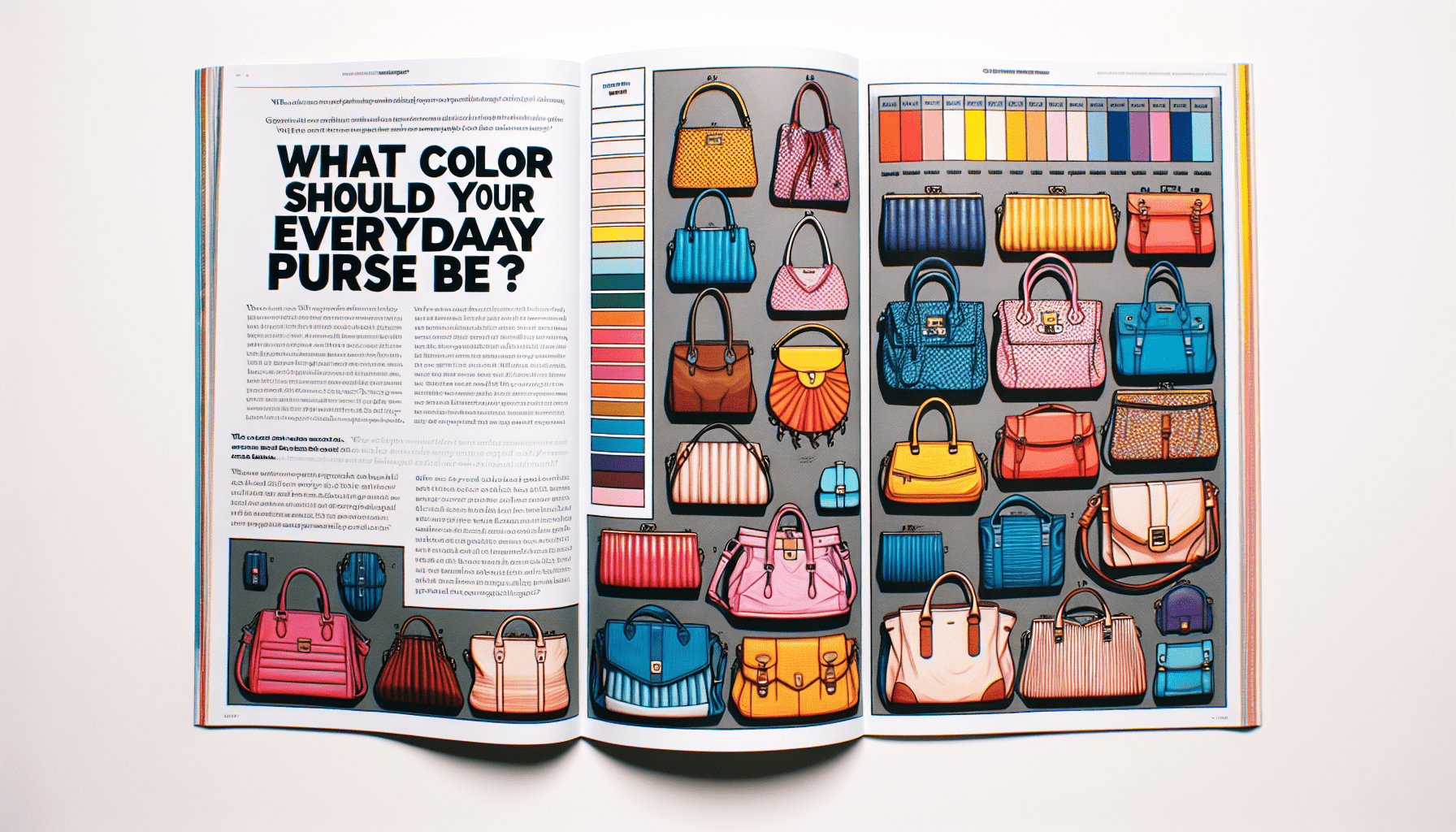Who Buys Luxury Handbags
Have you ever wondered who buys luxury handbags? Well, let’s uncover the mysterious world of luxury fashion and explore the demographics of those who indulge in these coveted accessories. From fashion enthusiasts to collectors, this article will take you on a journey to understand the diverse and fascinating individuals who invest in luxury handbags. Whether it’s for status, style, or simply the sheer pleasure of owning a high-end accessory, let’s discover who these fashion-forward individuals are and what drives their passion for luxury handbags.
Demographics
Age
Luxury handbags are sought after by individuals of various age groups. While there is no specific age range that exclusively purchases luxury handbags, younger consumers in their late teens to early thirties are often drawn to luxury brands to showcase their success and individuality. Older individuals may also indulge in luxury handbags as a well-deserved treat or a symbol of their accomplishments.
Gender
Luxury handbags have traditionally been associated with women’s fashion, and it is predominantly women who purchase these coveted accessories. However, the market has seen an increase in men embracing luxury handbags, particularly designer brand offerings that cater to their unique sense of style. Both women and men now indulge in the luxury and status associated with owning a high-end handbag.
Income
Luxury handbags command a premium price, making them accessible primarily to individuals with higher disposable incomes. These consumers possess the financial means to invest in luxury goods and view them as a reflection of their social and economic status. However, budget-friendly luxury brands and pre-owned markets have opened up avenues for individuals with moderate incomes to also own a piece of luxury.
Education
The level of education does not limit the desire for luxury handbags. Consumers with varying educational backgrounds recognize the allure and craftsmanship of designer handbags. However, individuals with higher education levels might have a deeper appreciation for the artistry and attention to detail, leading them to actively seek out renowned luxury brands.
Psychographics
Lifestyle
Owning a luxury handbag is often associated with a luxurious and glamorous lifestyle. Individuals who purchase these handbags typically enjoy frequenting high-end establishments, attending events, and indulging in luxurious experiences. They value sophistication, refinement, and the ability to showcase their elevated lifestyle through their choice of accessories.
Personality Traits
Various personality traits align with the desire to own luxury handbags. Individuals who value attention to detail, creativity, and uniqueness are drawn to the craftsmanship and design elements that luxury handbags offer. Additionally, people who are confident, assertive, and self-assured may gravitate towards luxury handbags as a means of expressing their individuality and personal style.
Values
The values associated with luxury handbag purchases extend beyond the material aspect. Consumers value the traditions, heritage, and legacy that renowned luxury brands uphold. They appreciate the time-honored craftsmanship, ethical production processes, and the longevity that these brands offer. Sustainability and social responsibility may also be important values for some individuals when considering luxury handbag purchases.
Interests
Individuals with a passion for fashion, design, and aesthetics are often intrigued by luxury handbags. Following fashion shows, reading magazines, and staying up-to-date with the latest trends are some interests that contribute to their desire to own a luxury handbag. Fashion enthusiasts also enjoy exploring the creative elements and innovative designs that luxury brands bring to the market.
Motivations
Status Symbol
One of the primary motivations for purchasing luxury handbags is their ability to serve as status symbols. Owning a designer handbag can signify prosperity, success, and social status. It allows individuals to visually communicate their accomplishments, wealth, and belonging to an exclusive group. The recognizable logos and brand names associated with luxury handbags serve as powerful symbols of achievement.
Quality and Craftsmanship
Luxury handbags are renowned for their exceptional quality and meticulous craftsmanship. Consumers who prioritize quality over quantity are motivated to invest in these bags due to their durability, attention to detail, and use of premium materials. The promise of a luxury handbag’s longevity makes it an appealing choice for individuals who seek accessories that withstand the test of time.
Fashion and Trends
Luxury handbags are significant contributors to the ever-evolving world of fashion. Trend-conscious individuals are motivated to own designer handbags to stay current and showcase their fashion-forward sense of style. The fashion industry’s cyclical nature drives consumers to invest in timeless classics and seasonal statement pieces, ensuring they remain on-trend and fashionably relevant.
Exclusivity
The allure of exclusivity plays a crucial role in motivating individuals to purchase luxury handbags. Limited edition designs, rare materials, and intricate details create a sense of exclusivity and uniqueness. Consumers are drawn to the idea of possessing something that is not easily attainable, making luxury handbags a desirable item for those seeking individuality and unparalleled luxury.
Influence of Celebrities and Influencers
Celebrity Endorsements
Celebrities have a significant impact on luxury handbag purchases. When renowned celebrities are seen carrying a specific designer handbag, it creates a sense of aspiration and admiration among consumers. Celebrity endorsements influence consumer perceptions of the brand’s desirability, thereby driving increased demand for the handbags they endorse.
Social Media Influencer Recommendations
Social media influencers have become a powerful force in shaping consumer behavior, including the purchase decisions of luxury handbags. Influencers often showcase their curated collections, provide styling inspiration, and offer honest reviews of luxury handbags. Their recommendations hold weight and influence consumers who trust their judgment and seek validation before making a luxury handbag purchase.
Red Carpet Appearances
Red carpet events and award ceremonies serve as platforms for celebrities to showcase their fashion choices, including their luxury handbags. Highly publicized appearances by charismatic personalities create a desire among consumers to emulate their style and elegance. Luxury handbags worn by celebrities on the red carpet become highly sought after, leading to increased sales and popularity for the brands.
Social and Cultural Factors
Social Class
Social class plays a fundamental role in luxury handbag purchases. Higher social classes, such as the affluent and elite, are more likely to invest in luxury handbags as a demonstration of their elevated status. The aspiration to belong to a higher social class influences consumers’ desire to own luxury goods and associate themselves with the lifestyle and exclusivity that luxury handbags offer.
Culture and Tradition
Cultural influences shape luxury handbag purchases by dictating preferences, design aesthetics, and historical significance. Different cultures may prioritize specific luxury brands, favor certain styles, or embrace traditional craftsmanship. Heritage and tradition often drive consumers’ connection to luxury handbags, as they appreciate the cultural significance and storytelling elements associated with these accessories.
Peer Pressure
Peer pressure can impact luxury handbag purchases, especially among younger consumers. The desire to fit in or be accepted by a particular social group drives individuals to own luxury handbags as a means of conforming to societal expectations and showcasing their belonging to an exclusive circle. The influence of peers and the fear of missing out (FOMO) can significantly impact one’s decision to invest in luxury handbags.
Consumerism
Consumerism plays a pivotal role in the demand for luxury handbags. As consumers become increasingly focused on the acquisition of material possessions and the pursuit of fulfilling desires, luxury handbags are positioned as an aspirational item. The normalization and glorification of consumerism in society contribute to the desire for luxury handbags as a means of self-expression and personal gratification.
Brand Perception
Brand Reputation
Brand reputation is a crucial factor influencing luxury handbag purchases. Established luxury brands with a long-standing heritage and a reputation for excellence in craftsmanship, design, and customer service often attract discerning consumers. A strong brand reputation instills trust and confidence in potential buyers, assuring them of the handbag’s quality and elevating its desirability.
Perceived Value
Perceived value is a key consideration for consumers when purchasing luxury handbags. Luxury brands create a perception of value through the use of superior materials, impeccable craftsmanship, and attention to detail. Consumers perceive these handbags as prestigious, timeless, and worth the investment, contributing to their desirability and justifying the higher price tags.
Brand Loyalty
Brand loyalty is a significant factor within the luxury handbag market, as consumers often develop deep-rooted attachments to their favorite brands. Positive experiences with a particular luxury brand, including exceptional customer service, consistent quality, and brand identity alignment, foster a sense of loyalty among customers. This loyalty drives repeat purchases and word-of-mouth recommendations, further enhancing a brand’s reputation and market presence.
Purchase Channels
Physical Stores
Physical stores serve as immersive havens for luxury handbag purchases. The ambience, personalized service, and tactile experience of seeing and feeling the handbags contribute to the allure of physical retail. Luxury boutiques dedicated to specific brands offer a curated shopping environment and exclusive access to limited-edition pieces, enhancing the overall purchasing experience.
Online Retailers
Online retailers have revolutionized luxury handbag purchases by providing convenience and accessibility. E-commerce platforms and luxury brand websites offer a wide range of handbags, enabling consumers to explore options and make purchases from the comfort of their homes. Virtual shopping experiences, detailed product descriptions, and customer reviews aid in decision-making, making online retailers a popular channel for luxury handbag shoppers.
Department Stores
Department stores with dedicated luxury sections attract a diverse customer base seeking a variety of luxury handbag brands under one roof. These stores provide the convenience of browsing multiple brands, allowing shoppers to compare designs, prices, and styles. Department stores also offer exclusive events, collaborations, and limited edition releases, catering to the desires of luxury handbag enthusiasts.
Luxury Boutiques
Luxury brand boutiques provide an immersive retail experience catering to the most discerning luxury handbag buyers. These boutiques offer a sanctuary for indulgence, with knowledgeable sales staff, elegant interiors, and curated collections. Personalized shopping experiences, private viewings, and access to limited edition releases entice customers seeking exclusivity and a heightened level of service.
Buying Behavior
Impulse vs. Planned Purchases
Luxury handbag purchases exhibit a mix of impulse and planned buying behavior. Impulse purchases may occur when consumers are captivated by new designs, limited edition releases, or spontaneous retail therapy. Planned purchases, on the other hand, involve meticulous research, decision-making, and saving up to acquire the desired luxury handbag. The balance between impulsivity and strategic planning varies among individuals.
Research and Comparison
Many luxury handbag buyers engage in extensive research and comparison before making a purchase. They consider factors such as brand reputation, design aesthetic, quality, price range, and resale value. Online forums, fashion magazines, social media platforms, and brand websites are popular sources for researching handbag options, seeking recommendations, and comparing prices to ensure the best decision is made.
Collecting and Investment
Some individuals are motivated to collect luxury handbags as a hobby or for investment purposes. Limited edition releases, rare materials, and iconic designs often appreciate in value over time, making luxury handbags a tangible asset. Collectors and investors focus on acquiring sought-after pieces and understand the potential for future returns on their investment.
Brand Association
Luxury handbag purchases are often influenced by brand association. Consumers seek out brands that align with their personal values, lifestyle, and design preferences. Brand identity, heritage, and storytelling elements play a vital role in creating an emotional connection between consumers and luxury handbag brands. The association with a brand may reinforce one’s self-identity and enhance the overall purchasing experience.
Geographical Trends
Regional Preferences
Geographical regions around the world exhibit unique preferences when it comes to luxury handbag purchases. In North America, brands such as Louis Vuitton, Gucci, and Chanel hold significant appeal. In Europe, heritage luxury brands like Hermès and Fendi are highly coveted. Asian markets often gravitate towards brands like Prada, Dior, and Givenchy. These regional preferences are influenced by cultural factors, brand presence, and historical significance.
International Demand
The demand for luxury handbags extends beyond domestic markets, with international buyers playing a significant role in the industry. Tourists and travelers often visit luxury shopping destinations, such as Paris, Milan, and New York, to purchase iconic luxury handbags. Consumers from emerging economies, seeking to showcase their newfound affluence, also contribute to the global demand for luxury handbags.
Tourist Shopping
Luxury handbags are popular purchases among tourists looking to commemorate their travels and immerse themselves in the luxury retail experiences of renowned cities. Luxury shopping destinations like Dubai, London, and Tokyo attract tourists from all over the world who indulge in luxury handbag purchases as souvenirs, status symbols, or tokens of their memorable experiences.
Economic Factors
Income Inequality
Income inequality can impact the luxury handbag market. As the wealth gap widens, luxury handbag purchases may become more concentrated among the ultra-affluent, while individuals from lower-income brackets may be deterred from investing in high-end accessories. Economic disparities can shape consumer behavior and influence the market’s dynamics, with luxury brands adapting their strategies to cater to the changing economic landscape.
Economic Growth
Economic growth in a region or country often correlates with an increased demand for luxury handbags. Rising incomes, expanding middle-class populations, and improved standards of living create a larger consumer base for luxury brands. As economies flourish, individuals strive to embody success and elevate their lifestyles, driving the desire for luxury handbags as a way to showcase their prosperity and participate in the luxury market.
Disposable Income
Disposable income levels significantly influence luxury handbag purchases. When individuals have higher discretionary funds, they are more likely to allocate a portion towards luxury goods. Luxury handbags, being aspirational items, are often considered a worthwhile investment when individuals have surplus income after meeting their essential needs. Disposable income allows for the pursuit of luxury, leading to increased demand within the luxury handbag market.
In conclusion, the consumers who purchase luxury handbags encompass various demographics, psychographics, and motivations. The allure of luxury handbags transcends age and gender, appealing to individuals across different income levels and educational backgrounds. Lifestyle, personality traits, values, and interests significantly influence consumers’ desire to own luxury handbags. Motivations such as status symbol, quality and craftsmanship, fashion and trends, and exclusivity drive individuals to invest in these coveted accessories. The influence of celebrities, social and cultural factors, brand perception, purchase channels, buying behavior, geographical trends, and economic factors all play crucial roles in shaping the luxury handbag market. Whether it’s through physical stores, online retail channels, department stores, or luxury boutiques, consumers embark on a journey to own luxury handbags that represent their personal style, aspirations, and social standing.




